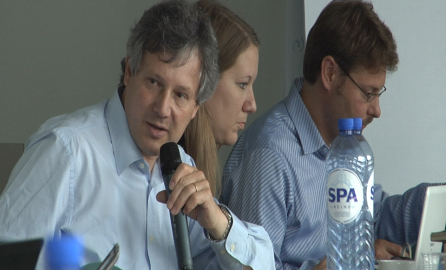At their annual meeting, held this year in Brussels, donors active in Decentralisation and Local Governance gathered to take stock of their activities to date and consider ways to make donor support more effective in future.
The Informal Development Partners Working Group on Decentralisation and Local Governance brought together over 25 experts from partner and donor agencies for three days from the 18 – 20th May.
Attendees considered a host of issues, including the dynamics between decentralisation programmes and sector operations, problems experienced in measuring decentralisation support, managing fiscal decentralisation, and how donors should respond to the recent wave of revolution and political change in North Africa in the area of decentralisation and local governance.
“The problem for decentralisation is that it is a cross-cutting, slightly longer-term institution-building set of issues,” said Kai Kaiser, from the World Bank. “If we frame results effectiveness in the area of decentralisation as decentralisation simply being an instrument to arrive at better service delivery over a two to three year period, we’re lost.”
Hosted by EuropeAid and the Swiss Agency for Development and Cooperation, the gathering also provided an opportunity for attendees to prepare their message for the upcoming High Level Forum on Aid Effectiveness, scheduled to take place in Busan, Korea, at the end of this year.
“My main expectation for this meeting was the get the crowds together around… Busan,” said Kuno Schlafli from the Swiss Agency for Development Cooperation. “The development partners’ working group has a stake to contribute to the future orientation of the aid effectiveness measures and concepts and we want to contribute to that moment [in Busan].”


Log in with your EU Login account to post or comment on the platform.